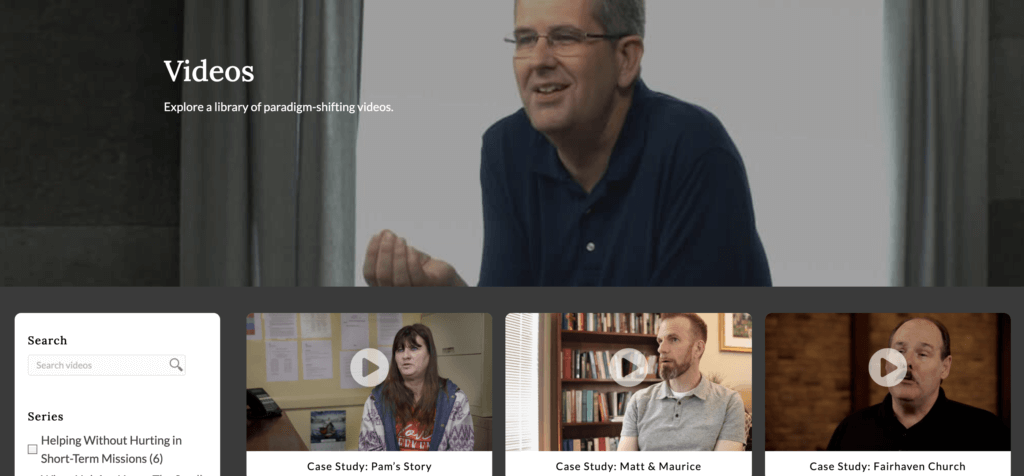Video: Participation *Is* Development
Getting everyone involved in a ministry initiative isn’t just a means to sustainability, but the heart of healthy, transformational development.
Researchers and practitioners have found that meaningful inclusion of materially poor people in the selection, design, implementation, and evaluation of any poverty alleviation effort increases the likelihood of its success.
Unfortunately, we often pursue approaches to poverty alleviation have been highly non-participatory, using a “blueprint approach” in which the economically non-poor make all the decisions about the project and then do the project to the economically poor.
Although the blueprint approach appears to be very efficient, it often fails because it imposes solutions on poor communities that are inconsistent with local culture, that are not embraced and “owned” by the community members, or that cannot work in that particular setting. The fact that an idea worked well in one place simply does not mean it will work well in the cultural, economic, and institutional context of another place—particularly if there are vast cultural differences involved.
Learning Together is Key
We need to avoid “blueprints” for those we are trying to serve and take a “learning process” approach to development instead. This approach seeks to facilitate a cycle of action and reflection in which materially poor people participate in all aspects of the project: proposing the best course of action, implementing the chosen strategy, evaluating how well things are working, and determining what needs to be modified as the strategy moves ahead. The role of the outsider in this approach is not to do something to or for the materially poor individual or community but for insiders and outsiders to seek solutions together.
A learning process approach increases the likelihood that the project will work well, for two primary reasons.
- All people are more likely to have a sense of enthusiasm for and ownership of a project if they have been full participants in it from the very beginning.
- Materially poor communities are complex and hard to understand for outsiders, so knowledge and skills of insiders—the materially poor themselves—are vital to getting things done and to making things work well. It is simply foolish to ignore their insights.
While a learning process approach typically takes more time to produce tangible results than a “blueprint” approach, the learning process approach is often more efficient in the long run because it is more likely to result in workable and sustainable interventions. Of course, viewing participation solely as a means of achieving those ends misses the fundamental reason that participation is so vital to poverty alleviation: Participation is not just the means to an end but rather a legitimate end in its own right.
Why? The goal of poverty alleviation is to participate in God’s story of restoring people to who He made them to be—priests and rulers who use their minds, affections, will, and body to enjoy loving relationships with God, self, others, and the rest of creation. The crucial thing is to help people to understand their identity as image bearers, to love their neighbors as themselves, to be stewards over God’s creation, and to bring glory to God in all things. One of the many out-workings of such holistic restoration is that people exercise dominion over their individual lives and communities, constantly seeking better ways to use their gifts and resources to solve problems and to create bounty in service to God and others. People are empowered to make decisions about the best way to do something, to act upon their decisions, to evaluate the results of their decisions, and then to start the decision-making process all over again.1
This principle is not a magic formula for success, but it is a powerful antidote to pride and our tendency toward god-complexes in working across socioeconomic and cultural lines, and has been used by God in many and various settings to facilitate long-term transformation.
This video and dozens more brief, sharable videos on core principles and practices from a biblical framework of poverty alleviation are available in Chalmers’ FREE video library.
- Adapted from Steve Corbett and Brian Fikkert, When Helping Hurts: How to Alleviate Poverty without Hurting the Poor…and Yourself (Chicago: Moody Publishers, 2012), 134-139.



